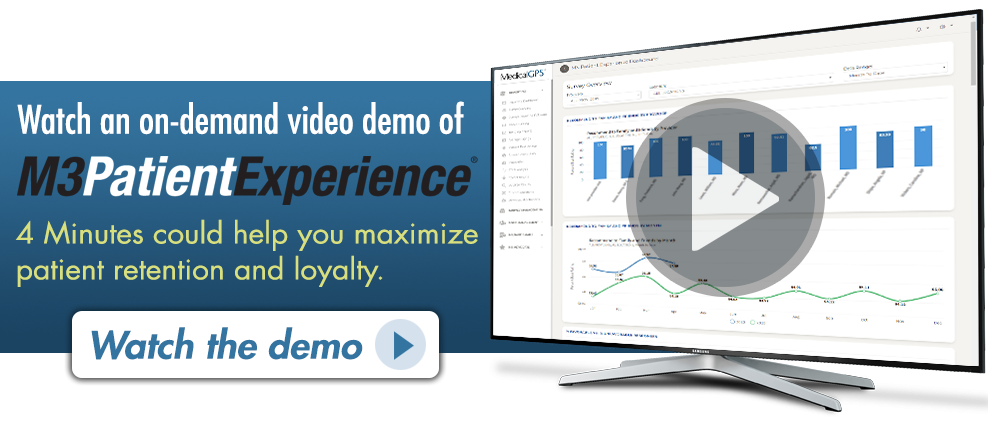 Martin Ekrem, Guest Author
Martin Ekrem, Guest Author
Martin (Marty) Ekrem is the Founder and President of Vaquero Health Resources, LLC™ (VHR). Prior to founding VHR, Ekrem was Vice President, Outreach Services, Via Christi Health (VCH) and President, Via Christi Solutions. Marty brings over 30 years of healthcare executive experience to VHR in both acute care hospital and physician practice management executive experience.
The idea of having good data to help you make informed decisions seems like such a simple concept, it’s almost too elementary to even talk about. However, if you are the CEO, CAO, COO, or site manager for a medical group or hospital, you know the importance of having good information for decision-making. You may recall multiple horror stories of a medical group or hospital that suddenly found itself in panic mode because of a financial or operational crisis, such as:
-
We’ve drawn down our entire line of credit and still need more cash for operations.
-
The patient billing department (or outside billing company) hasn’t been getting billing done in a timely manner and the days in accounts receivable have skyrocketed.
-
It was just discovered that the new building project is already $300,000 over budget and there’s another $650,000 required to finish the project.
-
Staffing costs are within this year’s original budget. However, volumes for the year are down seven percent and so is revenue. Staffing should have flexed to account for lower volumes and less revenue. Consequently, the medical group isn’t hitting its income performance target, which impacts the amount of money available for physician compensation.
-
Thirty patients have transferred their medical records to another group in the past month because they are unhappy with Dr. X.
-
Fill in your own nightmares you are familiar with… The list goes on.
 In each case, management and/or business owners were surprised because they weren’t religiously tracking their financial and operations performance to predefined “benchmarks”. The timely reporting of key benchmarks would have provided a medical group board or shareholders advance warning that the business was on a negative path. Good data making you money can come in the form of:
In each case, management and/or business owners were surprised because they weren’t religiously tracking their financial and operations performance to predefined “benchmarks”. The timely reporting of key benchmarks would have provided a medical group board or shareholders advance warning that the business was on a negative path. Good data making you money can come in the form of:
-
Identifying opportunities to enhance revenue: collecting copays at time of service; coordination of benefits; or tracking net collection ratios to be sure the business is being properly paid according to agreed upon payer contracts; clinicians getting charting completed timely and charges turned in;
-
Better cost and operations management by keeping tabs on expenses: tracking FTEs to volumes; managing overtime and temporary employees; equipment rental costs; supplies, etc.
-
Warning that a particular function is not being properly executed by staff: a rise in accounts receivable; reduction in days cash on hand; identifying potential project cost overruns timely so that adjustments could be made before the extra expenses were committed to.
Multi-site medical groups should be able to discuss profit and loss performance for the group, and by site. The goal should be to prepare standardized monthly financial and operating reports, including performance to 10-12 key benchmarks that are reported to medical groups owners. If the reporting is properly detailed and formatted, the leadership should be able to know the status of the group’s performance at all times. This standardized reporting principle applies equally to a physician-owned group as well as a hospital-owned group. Sometimes hospitals do not wish to share detailed financial information with their medical group physicians. However, if a hospital wants a group of physicians to have an ownership mentality, the physicians should be given the same type of data that they would have if they did own the group. I recommend that physicians, as well as the non-physician CEO/CAO/COO, all sign confidentiality and nondisclosure agreements. There needs to be consequences for breaching confidentiality.
The mantra of every leadership team should be that decisions are made “based on the weight of evidence.” Again, good data makes you money. Too often anecdotal stories are circulated and become the basis for decision-making. Avoid the temptation to short shrift the decision-making process by not taking time to gather available objective data on whatever issue is being considered. Track down the anecdotal stories of “we have a physician who had a patient that…” More than once, I’ve had client organizations who thought they had an operations issue to discover that the story told by 10 different doctors was the same patient story told by 10 different people.
Even when working to make decisions based on the weight of evidence, care should be given to not make major financial/operational changes every time there’s a dip or spike in the data. Set sound policy and ride the variations long enough to know that you have a real issue and not a variance that self corrects in the next month or two.
See part two of Marty Ekrem’s ‘Good Data Makes You Money’ series.


